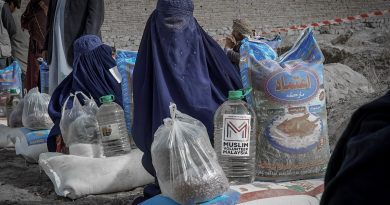FOCUS on Sports Geopolitics: Sportswashing
Drew Starbuck
Staff Writer
Saudi Arabia recently made headlines in the sporting world with its purchase of a stake in the English Premier League club Newcastle United as part of their Public Investment Fund, according to NPR. This fund, which is owned by the Saudi Arabian government, ended up purchasing an 80% stake of Newcastle United for 300 million pounds, the equivalent of $400 million.
This buyout of the English soccer club is just the latest effort by figures in the Saudi government to invest in the sporting world across several different platforms. These investments by Saudi Arabia, and similar actions by other oil-rich monarchial governments in the Middle East, have called attention to the practice of “sportswashing.” The Guardian defines the practice as “a macro-level manipulation of sport’s status as the great shared global spectacle. Sportswashing describes the way sport is used to launder a reputation, to gloss a human rights record, and to wash a little blood away.”
Using the term indicates a moral standpoint on how nations and people should not normalize the actions and regimes of nations through their association and sponsorship within the sporting world. A report by Grant Liberty states that Saudi Arabia has spent more than one and a half-billion dollars to stage professional sports events domestically and abroad. This includes events such as the annual Spanish Super Cup soccer match, professional golf tournaments on the men’s and women’s tour, professional wrestling, and mixed martial arts.
Similarly, in the football world, Paris Saint-Germain’s recent purchase of Lionel Messi, when even Barcelona F.C. his longtime home club was unable to afford his services, attracted much attention due to the bankrolling involvement of oil-rich monarchies. As Deutsche Welle reports, “Since 2011, PSG have been owned by Qatar Sports Investments (QSI), a subsidiary of the sovereign wealth fund of the state of Qatar.” This has allowed the French club to make massive moves in the free-agent market, which has attracted criticism from critics calling this a monetization of the sport.
Deutsche Welle also reports that “PSG’s transfer activities have altered the playing field in European football beyond recognition, as deals for the likes of superstars like Neymar (€222m from Barcelona in 2017) and Kylian Mbappé (€145m from Monaco in 2018) have sent inflationary waves across the transfer market.” The UEFA itself, Europe’s football league, has deep economic ties with the oil industry and Gulf nations in particular, according to Politico. Gazprom, the state-owned Russian oil company, is a major sponsor of the international Champions League competition and several clubs that play in it. Qatar Airways was a sponsor of its recent Europe-wide competition, Politico reports. Therefore, when the EU published climate change ads in a partnership with UEFA during the recent European competition, the conflict of public interest drew much attention.
Some have argued that these nations are free to engage in the free global economy as well, according to the Guardian. If the Chinese government can host the 2022 Winter Olympics, for example, despite their treatment of and discrimination of the Uighur population, then those regimes and figures have just as much a right as those in Western societies to invest in the sporting world, they argue.
Along with hosting the Winter Olympics, China has taken a great interest in investing in the football world. According to Deutsche Welle, “As recently as 2014, the powers-that-be in Beijing issued an agenda aimed to make China a football superpower by 2050 — and wealthy investors quickly set out to invest in football both in China and abroad.” China has also sought to decommercialize the game domestically by removing the owner’s name from football clubs and removing those clubs that do not comply with the new regulations.
Along with this, China’s recent takeover of Hong Kong, aggression towards Taiwan, and the disappearance of Chinese female tennis star Peng Shuai after her accusation of sexual assault by a Chinese government official surfaced have attracted international criticism, reports the Guardian. However, despite this, there seems to be a relative lack of blowback on the Chinese government except for the Women’s Tennis Association to suspend any future tournaments in China.

